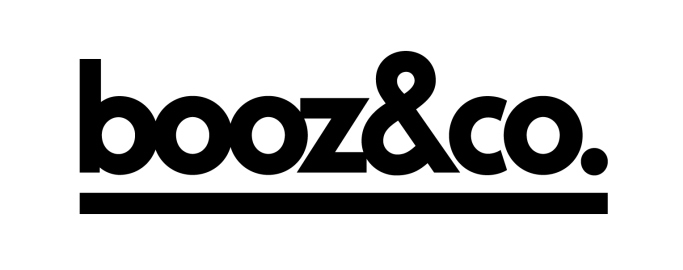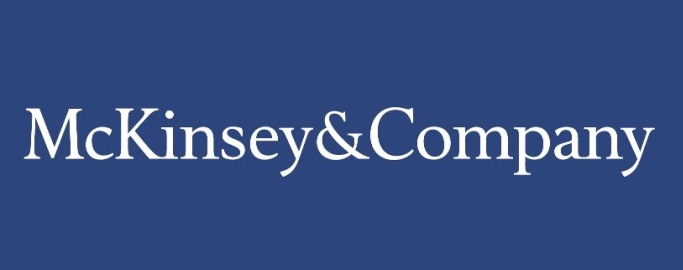What Are the Qualities of a Successful Management Consultant?

Management consulting is a very specific niche or calling. Successful consultants are known to possess qualities and characteristics that are essential for carrying out the rigorous duties associated with the role.
Contrary to popular belief, the characteristics of a successful management consultant can be honed through years of practice. Before we dive into the specific qualities, let’s take a closer look at what the job entails in order to better understand what type of individuals fair well in the profession.
Not Your Typical Office Job
The way the media portrays management consulting is very different from what the job is really like. Consultants are trained to think outside the box. This also applies to their work schedule. Most consultants are required to work and travel on a regular basis, which can be very disconcerting. The traveling aspect is a concern for many consultants because it’s an unpredictable factor in their hectic schedule of meeting deadlines and writing reports.
Furthermore, clients can be extremely demanding, primarily because they feel somewhat uneasy about putting the fate of their company in the hands of a management consultant. The pressure of the job is another factor that can make the most seasoned and experienced consultants fold. It takes an individual with a strong and disciplined mind to get through weeks of brainstorming and meetings while staying 100% focused.
Consistency is expected and is one of the hardest parts of the profession. Top consulting firms require their employees to stay sharp in every aspect of the job. In the beginning this can seem like a walk in the park, but midway into a consultant’s career when the stakes are higher, it may not be that easy.
So, what are the qualities of a highly successful consultant? Read more to find out.
Communication and Social Skills
A consultant must have strong communication and social skills—it’s an unavoidable aspect of the profession. Professionals are required to talk to clients and colleagues, report to their superiors, hold meetings, present at conferences, and more. Many individuals who simply try to present themselves as friendly or sociable won’t make the cut because consultants are required to be sociable 24/7. When a consultant isn’t at the office or in a meeting, he or she might be networking or taking a group of clients to lunch. Even those who are naturally outgoing or comfortable around people may feel that this side of the job can get overwhelming at times. Introverts may find it difficult to compete with other consultants who are more vocal. This doesn’t mean that all successful consultants are extroverts; however, in order to cope with the social aspects of the job, employees who are shy and timid may need to exert twice the effort to breakdown personal boundaries that may be hindering them from performing well.
Quick and Organized Thinking
Management consultants are required to sift through endless amounts of information while formulating a solution, which requires a well-structured mind. It’s almost like stepping into the middle of a battlefield; a consultant may have an arsenal of frameworks memorized, but organized thinking also includes efficient application. A consultant must know when to use what he or she has learned in order to arrive at the best solution. Without this skill, it may take some time for an individual to reach a feasible solution; a luxury that most consultants don’t have.
Adaptability
Each client is different. Even if they are competitors in the same industry, working with the same products, services, and concerns, internally (i.e., structure, mission, forecasts) they are very different. A successful consultant is required to acclimate and adapt to the needs of the client as well as meet the objectives set by his or her superiors. This is not a simple feat, even though most consulting firms specialize in specific industries and sectors.
Moreover, consultants must also adapt to global trends, which may require a renewed mindset. Consultants are expected to be caught up to speed in a short amount of time. This may mean reading and comprehending a large amount of information over a few cups of coffee.
Work Exceptionally Well in a Team
A team of consultants who work well together can be a powerful force in a high caliber firm. Unfortunately, the opposite is also true. Management consultants who are great on their own but are unable to work well in a team can easily derail a project. Teamwork is an essential part of being a consultant. It’s not practical to attempt to do everything alone; those who try may burn themselves out. A highly successful consultant knows the strengths and weakness of each of his or her teammates and is able to maximize the potential of each member, which saves time and effort.
Working effectively in a team also requires a consultant to be sensitive to the needs of others. The ability to empathize with a group of consultants is hard to come by. Most consultants have a tough outer shell, but a successful consultant in charge of leading a team knows when to push and motivate and when to relax and take a break- even when the other members of the team aren’t backing down. Strong empathy skills can raise productivity and prevent breakdowns.
Superior Math Skills
A consultant must also be well versed in the technical aspect of the occupation. This includes mental math abilities as well as analytical skills. Even though calculators and spreadsheets are readily available, it doesn’t necessarily mean they should be used for every calculation. Imagine pulling out a calculator in the middle of a presentation in front of the senior staff in a multi-national company—it doesn’t fit the image of an expert consultant. More importantly, the computation must be accurate. It’s true that most computations are rough averages or estimates, but even so, the margins provided by a management consultant aren’t too far off the actual mark.
Part of the work of a consultant requires analyzing graphs for accurate forecasts and calculated projections. As we all know, not all data on a graph is important. Successful consultants know how to analyze charts and graphs and identify the information or data that is relevant, which enables them to quickly formulate a solution.
Think Outside the Box (Creative Thinking)
One of the main reasons that leading companies hire management consultants is because of their point of view. It’s difficult to spot internal problems within a large company when you’re part of its daily operations. Furthermore, some of the staff are so used to the structure and business functions that they are unable to pinpoint the weak spots. A successful consultant can walk into a company, analyze the facts and figures, identify the areas that need improved, and find a viable solution for implementation.
Many companies aren’t quick to admit that they rely on a management consultant’s expert advice or proposed solution. Before hiring a consultant, businesses have most likely tried everything to salvage or find an answer to their problems. A consultant must be creative enough to formulate a solution that the management or senior staff has not thought of.
Thinking outside the box doesn’t end with a feasible solution. A management consultant is also required to implement the new plan and put it into action. This entails creative thinking, as most companies are looking for fresh and new ideas that can help them stand out from their competitors and solidify their brand.
Drive and Motivation
It’s easy to spot successful management consultants. They talk a little differently, and move with confidence, without being too arrogant. Their work is always thorough and they know how to make the most out of seemingly hopeless situations. Lastly, they are always working towards a goal and are never satisfied with mediocre results.
How does a consultant achieve this mindset? The best consultants are truly made for the job. Preparation and hard work, amounting to valuable work experience, has set them apart from their colleagues. Motivation is essential in the consulting industry; many experts question their career when the pressure starts to build, but don’t throw in the towel.
In conclusion, perfecting the qualities of a highly successful consultant requires years of practice and preparation. The management consulting industry is rewarding to those who are willing to work hard and help others along the way.
Learn More
Want to learn more about the makings of a highly successful management consultant? Our guide to management consulting career provides an inside perspective on the skills top firms look for and how you can improve your capabilities and land a management consulting job.








